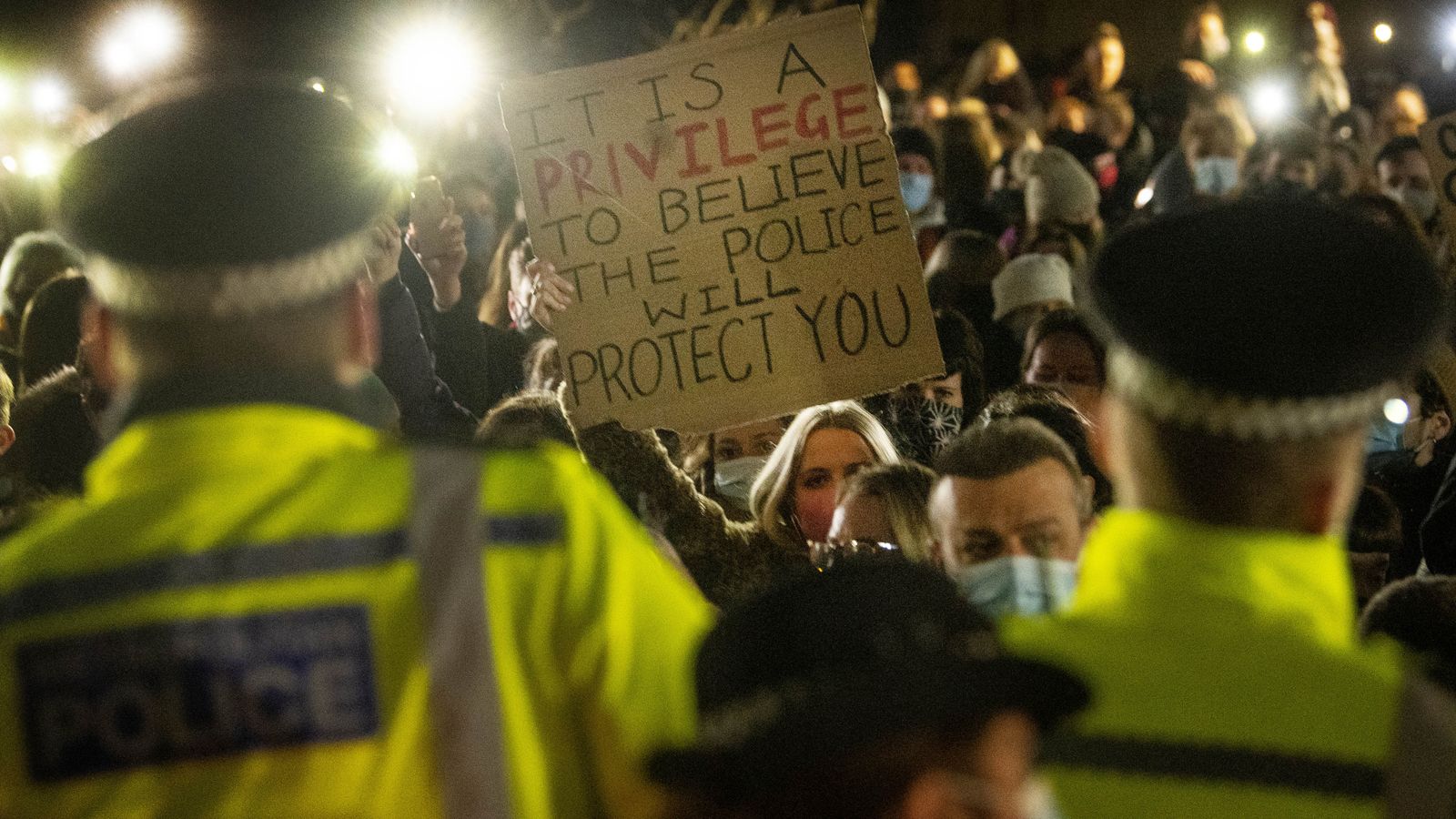Home Secretary Priti Patel will tell MPs “we do not make policy through mob rule” as she urges them to support a new Public Order Bill.
She is attempting to reintroduce measures which have previously been blocked by the House of Lords as part of the Police, Crime, Sentencing and Courts Bill.
These include introducing a new offence of obstructing major transport networks, which carries a maximum penalty of six months’ imprisonment, an unlimited fine or both.
Interfering with key national infrastructure – such as railways, roads and printing presses – will also become a criminal offence, which would bring a penalty of up to 12 months’ imprisonment, an unlimited fine, or both.
Amnesty International says the home secretary is smearing peaceful protest with the plans, while Fair Trials says the government “appears to be intent on destroying the right to peaceful protest rather than protecting it”.
As she opens the second reading debate on the bill in the House of Commons on Monday, Ms Patel is expected to tell MPs: “From day one, this government has put the safety and interests of the law-abiding majority first… but recently we have seen a rise in criminal, disruptive, and self-defeating tactics – from a supremely selfish minority.
“Their actions divert police resources away from the communities where they are needed most… and we are seeing parts of the country grind to a halt… This is reprehensible behaviour and I will not tolerate it.”
Afghan evacuees left in limbo due to Home Office backlog
Ukraine war: Priti Patel apologises as figures show just 12,000 refugees have arrived under visa schemes
Home Office risks another Windrush scandal if its culture does not change, review author warns
As part of the bill, police will also be given the power to proactively stop and search people to seize items intended for “locking-on” purposes, such as glue or bamboo structures meant for obstructing police.
‘Lock-on’ tactics, such as protesters gluing themselves to roads or public transport, have been repeatedly employed by groups such as Insulate Britain and Just Stop Oil.
Courts will also be given new powers to make Serious Disruption Prevention Orders, which would make those who have been found to repeatedly cause disruption wear an electronic tag, to ensure they are not in a particular place where they might commit a “protest-related offence”.
Ms Patel will add: “I will not stand by and let anti-social individuals keep causing misery and chaos for others. The Public Order Bill will empower the police to take more proactive action to protect the rights of the public to go about their lives in peace.
“However passionately one believes in a cause, we do not make policy through mob rule in this country… I will not be deterred from backing the police and standing up for the law-abiding majority, and that’s what the Public Order Bill does.”
Read more:
Noisy protesters could feel full force of the law after new bill is approved
But Labour’s shadow home secretary Yvette Cooper said the bill “fails on every count”.
She said it was too “widely drawn,” and could also penalise passers-by or peaceful protesters.
She said Labour’s suggestion to make it quicker to secure injunctions when vital services are threatened with disruption, would be better.
“This is a wasted opportunity to take a sensible approach and is getting things all wrong.
“The home secretary is just recycling widely drawn measures from the Police Bill which have already been rejected by parliament.
“Tomorrow we should instead be having the second reading of the long-awaited Victims Bill with measures to tackle rising crime and falling prosecutions; instead, the home secretary is letting everyone down.”
Amnesty International UK’s head of policy and government affairs Allan Hogarth described it as “outrageous” for Ms Patel to “smear peaceful protesters as a ‘mob'”.
She added: “At a time when protesters in places like Moscow or Hong Kong are hailed for their bravery – including by members of our government – it’s incredibly depressing that Priti Patel is pushing these repressive laws.”
Norman Reimer, the chief executive of the group Fair Trials, had said of the home secretary’s latest proposals: “By reintroducing plans that have already been rejected by UK parliamentarians, the UK government appears to be intent on destroying the right to peaceful protest rather than protecting it.”
Meanwhile, Extinction Rebellion (XR) has already announced plans to “bring millions of people on to the streets” in response to the new bill after it was announced in the Queen’s Speech earlier this month.









